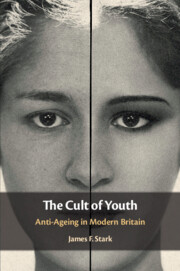4 - Electrotherapy, 1925–1932
Published online by Cambridge University Press: 28 February 2020
Summary
This chapter argues that the increasingly close relationship identified by historians between electricity and the body continued into the twentieth century. The development of neurology as a medical specialty in the latter part of the nineteenth century further enhanced the perception of the body as an electrical machine. As the electrical wiring of the nervous system became viewed as the prime seat of bodily control and sensation, so electricity itself was implicated in the ageing process. Medical scientists and entrepreneurs came into conflict over who was entitled to use electrotherapy as a form of treatment, and numerous devices, including electric belts, UV lamps and products based around radium, flooded the market. In contrast to a hormone-based understanding of the body, which emphasised hormonal differences as indicative of males and females, electrical explanations of matter and the body led to a more universal view of life; the same balance of electrical forces was required to preserve youth and vitality in both sexes.
- Type
- Chapter
- Information
- The Cult of YouthAnti-Ageing in Modern Britain, pp. 106 - 137Publisher: Cambridge University PressPrint publication year: 2020

